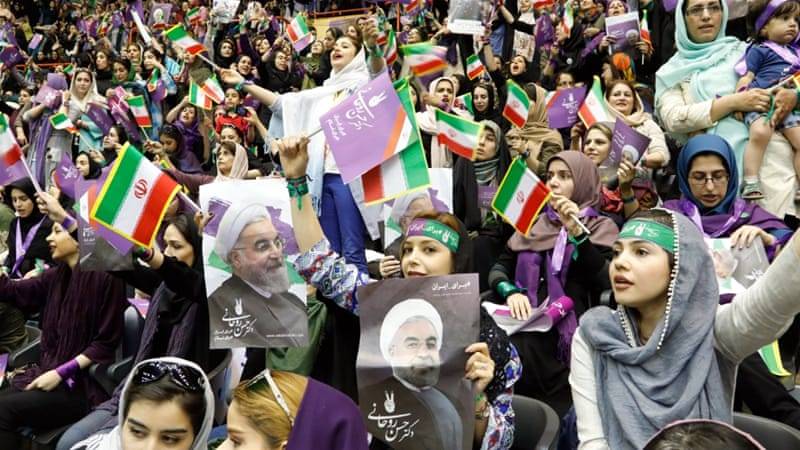With the 93 percent votes counted in Iran, the results show a landmark victory of principlists in Iran's recent parliamentary elections.
Although official results still to be announced by Iran's Interior Ministry at the national level, the provincial results show that all the 30 seats in Tehran province have gone to the principlists, whom western media refer to as conservatives or hardliners.
With the tally available from the elected candidates, over 80 percent of the counted parliament's seats are at the possession of the opponents to President Hassan Rouhani and his reformist supporters.
As it was predicted, the coalition of two major principlist trends with a united list titled Iran-e Sarboland (Proud Iran), grabbed the votes in Tehran with Mohammad Baqer Qalibaf heading the list. Qalibaf was Tehran's mayor for 12 continuous years, police chief and a presidential contender for two rounds in 2005 and 2013.
On Sunday, Iran's Interior Ministry announced that 42.57 percent of eligible Iranians took part in the recent parliamentary elections.
Interior Minister Abdolreza Rahmani Fazli said that "there were more than 57.918 million eligible voters in the country and 24.512 million people cast their votes in the ballot boxes."
The number of the participants in the Friday vote displays a significant drop of voters compared to the previous election. The 2016 parliamentary election in Iran saw 62 percent turnout.
Iran's supreme leader and senior officials had called for mass turnout and urged people to regard it as a religious and national duty.
In the capital Tehran, only 26.2 percent of eligible people attended the ballot boxes.
The reformist opponents of the conservative parties cite the reason in the decrease of voters due to disqualification of nearly 50 percent of registered people, most of whom being the representatives of reformists.
Among those disqualified were 90 moderate and reformist sitting members of Iran's 290-seat parliament who wanted to run for re-election.
With a parliament crowded with the principlists, it is expected that the Islamic republic will move in a course of more conflict with the west, with the United States at the top. In the meantime, the Islamic republic would strengthen its ties with its international allies and stretch its influence in the region, the analysts said.
They believe that a hardline parliament might create more challenges for the country than it confronts today.
Iranians went to the polls on Feb. 21 to elect hopefuls for the 290-seat parliament.
Rahmani Fazli said the turnout was "quite acceptable" given the outbreak of the novel coronavirus in the country, in addition to the country's political circumstances over the past months.






